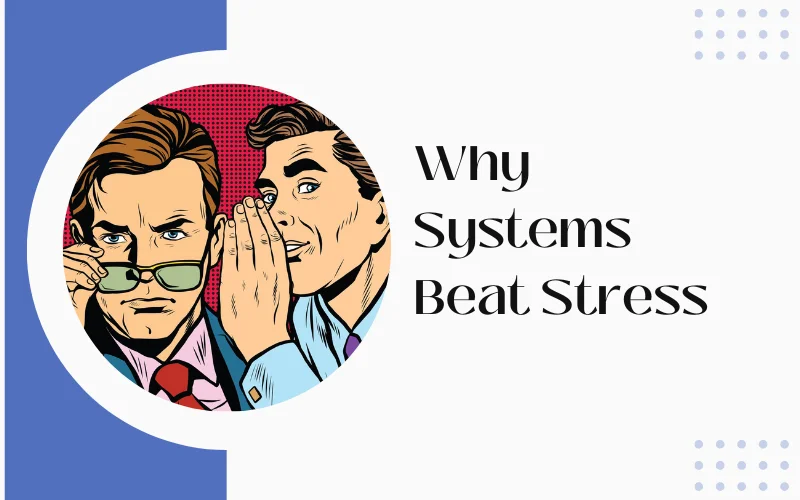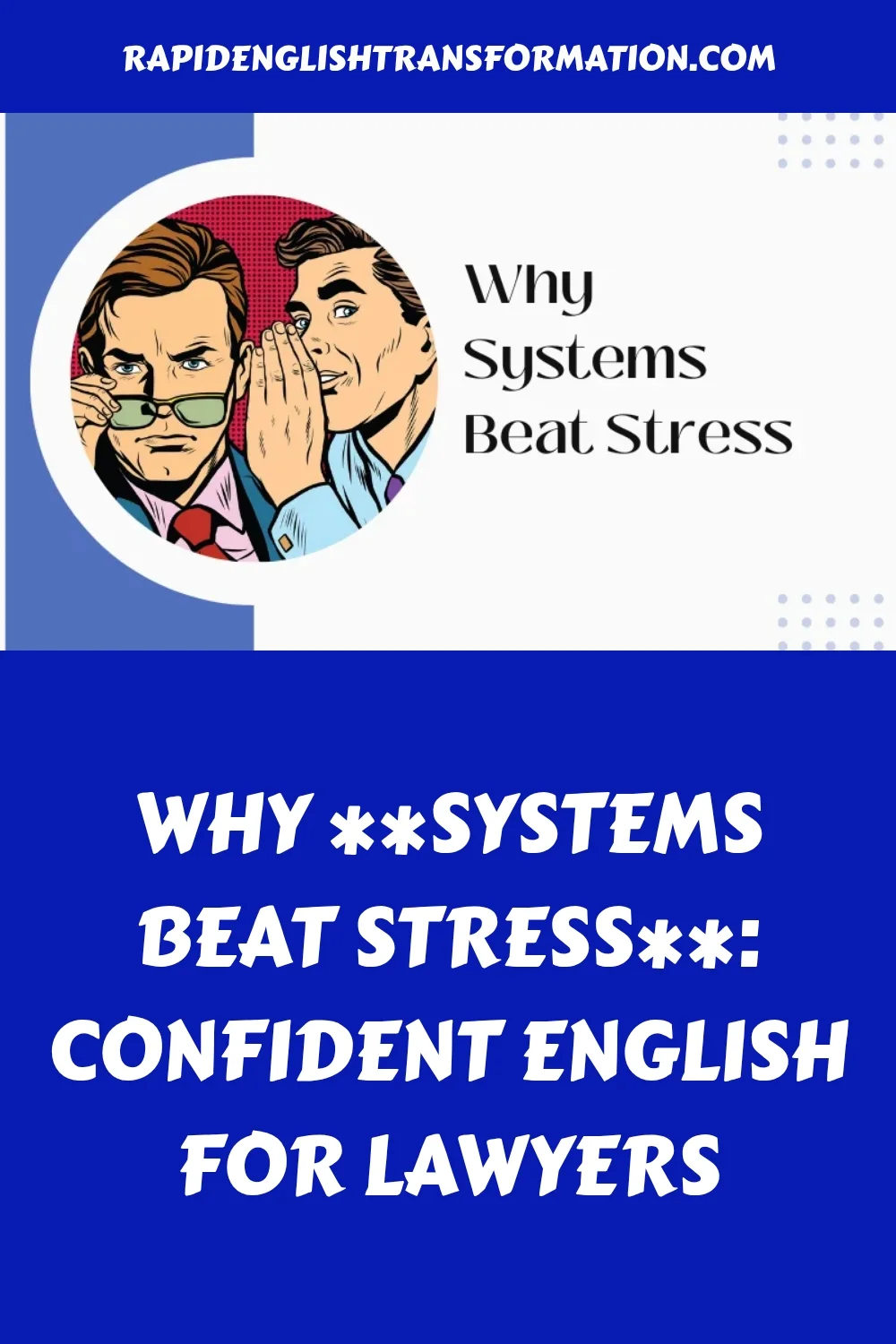Why **Systems Beat Stress**: Confident English for Lawyers

Here’s the truth: systems beat stress!
Every lawyer has faced this moment: your mind goes blank mid-sentence, your thoughts scatter, and the pressure of performing in English feels overwhelming. It’s not a lack of intelligence — it’s **stress**. And the key to overcoming that stress isn’t “more vocabulary.” It’s having a **framework**.
When you work in high-stakes situations — client negotiations, courtrooms, or international meetings — your brain switches to survival mode. The prefrontal cortex (responsible for logical thinking and language) slows down, while the amygdala (your stress centre) takes over. That’s why even brilliant lawyers struggle to find words under pressure.
❌
Why Stress Makes You Forget English
Under stress, your body releases **cortisol** and **adrenaline**. These hormones prepare you for danger — not dialogue. Studies by the
Harvard Business Review
show that high cortisol levels directly impair decision-making and verbal recall.
In other words, when you’re nervous, your brain literally **blocks access to vocabulary**. That’s why you forget simple words or lose your train of thought in meetings. It’s not a language problem — it’s a **performance problem**.
✅
How Frameworks Calm the Mind
A framework is like a script for your brain. It gives your mind a predictable structure to follow, which instantly **lowers stress**. When the brain recognises a familiar pattern, the **amygdala relaxes** — freeing your prefrontal cortex to focus and think clearly.
The MIT Sloan Management Review found that predictable systems improve confidence because the brain recognises **safety in structure**. Frameworks essentially “rewire” your reaction to pressure, helping you stay calm, focused, and articulate — even when you’re under fire.
My lawyer clients often tell me that after learning communication frameworks like PREP and PASA, they no longer panic when the spotlight’s on them. They feel a sense of **control** — and that control translates into clarity and confidence.
A simple framework like **PREP** (**P**oint, **R**eason, **E**xample, **P**oint) helps you express your ideas cleanly and logically. Instead of thinking “What do I say next?”, you just follow the steps. Your mind stays clear because your path is clear.
⚡
Real Transformation: From Pressure to Presence
One senior counsel I worked with used to freeze during board meetings. His heart would race, his voice would shake, and his sentences would trail off. Once he learned the **PASA** framework (**P**roblem, **A**gitation, **S**olution, **A**ction), everything changed. He finally had a method to handle tough questions under pressure — calmly and persuasively.
Within ten sessions, he was leading discussions, managing client objections, and even enjoying the challenge of high-pressure conversations. He hadn’t “improved his English.” He had improved his **ability to perform under stress** — through **structure**.
🎯
Why This Matters for Law Firms
Teams that use communication frameworks don’t just perform better individually — they **collaborate better**. Structured language reduces misunderstanding, improves clarity, and builds client trust. It also saves time, because every team member knows how to structure updates, summaries, and arguments efficiently.
For firms competing in international markets, that structure is **priceless**. As discussed in
How Firms Build Client Trust with Frameworks, clear communication isn’t a soft skill — it’s a **strategic advantage**.
🚀
How You Can Start
If stress or pressure affects your English performance, start small. Choose one framework — like PREP — and practice it daily. Once it feels natural, add PASA for handling objections or negotiation challenges. You’ll find that with each repetition, your stress response weakens and your **confidence strengthens**.
And if you want to accelerate the process, join one of my structured programmes designed specifically for lawyers:
🔹 The Confidence Script — €147
5 frameworks, 2 live sessions. Learn the systems that keep your language — and nerves — under control.
🔹 The Clarity Sprint — €249
10 live sessions. Real practice under pressure until confident English becomes your default mode.
📚 Related Reading
🔗 External Sources for Reference
- Harvard Business Review – How to Handle Stress in High-Pressure Situations
- MIT Sloan Management Review – The Science of Confidence Under Pressure
- American Psychological Association – How Stress Impacts Cognitive Performance
Generated with Pin Generator
⚡ The Influence Pack: Essential Frameworks for Fast Results
Tired of losing impact in English?
Learn how top international lawyers use structure and influence frameworks to win clients, negotiate confidently, and speak with control — **in just a few hours.**
- 📘 Essential Toolkit
- 🎯 Instant Results
- 💬 Designed for Legal Professionals
Enroll now for only £29.99
Start Now →Next step: The Clarity Accelerator — build the full system.
Secure payment • Instant lifetime access

